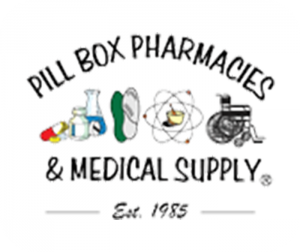Q & As: Medication Safety in Children
Curiosity kills more than the cat.... Did you know that medications are the top cause of poisoning in kids? Here are a few answers to some questions parents commonly ask about medication safety for kids.
1. Where should I store medications?
People may call it the “medicine cabinet,” but it’s not a good place to store medications.
Bathrooms are moist and can lower the strength of a medication. Plus, they’re a little too
easy for little hands to get into. Instead, keep drugs, eye drops, and vitamins out of sight
and out of reach of children. Try a high place, such as a hall closet or kitchen shelf.
Don’t forget that a curious kid may easily find medicine in a purse or dresser drawer.1,2
2. How should I measure medicine?
With young children, it’s especially important to get the dosing right. Always use the
dosing device that comes with the medicine. Measuring spoons or other home utensils
aren’t the same as a medication syringe or cup. 1
the inside of the cheek where there are fewer taste buds.4 If your child takes the
wrong dosage, call me right away. I can tell you whether or not it’s cause for concern.
Or call Poison Control for assistance as well.
3. Does a spoonful of sugar help the medicine go down?
Some medicines can taste pretty nasty to a child! It may be okay to mix a liquid medication
with chocolate or maple syrup. However, don’t do this for babies. If they don’t finish a
bottle, they won’t get the right amount of medication.2
crushing and mixing a tablet or capsule with food. 4
4. Is it okay to share prescription medications?
No matter how similar their symptoms, don’t have your kids share medications.2
Keep medications in their original childproof container.
5. How long can my child use a medication?
Be sure to not use drugs past their expiration date. Most drugs lose their strength
after about a year. If you have any question about whether or not to use a drug,
talk with your child’s doctor or me.2
6. Are OTC drugs safe for kids?
Be sure to read labels. Not all over-the-
counter (OTC) medications are safe for children of all ages. Of course, never
give aspirin to any child—it can cause serious illness, even death.3
Make sure you know a drug’s potential side effects. But stay alert to any adverse reactions.
Kids can be more sensitive to drugs than adults. For example, cold medications can cause
excitability or severe drowsiness in kids,even at lower doses. The FDA recommends that
you not use OTC cough and cold medications in children younger than age two.3
Together, we can help change that! To get If you use a syringe, try squirting the medicine on
And check with me before And never repackage them.
Rest, clear fluids, and a humidifier may be the best route to recovery from colds and flu.4
Remember: There’s no substitute for getting your specific questions
answered. I’m here to personally talk with you about your child’s medications.
I can also suggest OTC drugs and discuss any concerns you have about side
effects. If you don’t remember a question until you’re home, that’s okay. Just give
me a call.

